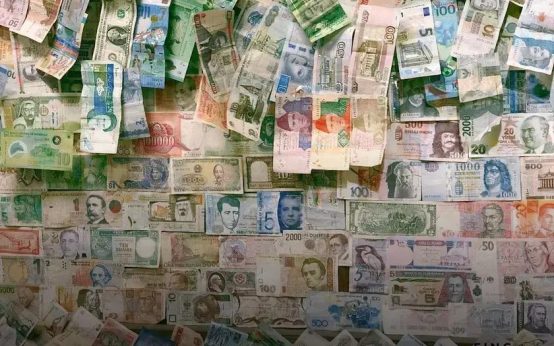Discover the world of NFTs and learn how to buy and sell them for profit with expert strategies. NFTs, or Non-Fungible Tokens, have revolutionized digital ownership, offering unique opportunities for profit. Understanding the market dynamics is crucial for success. In this guide, we’ll explore the key aspects of NFT trading, from selecting the right platforms to identifying profitable tokens. Let’s dive into the exciting world of NFT trading!
Understanding NFTs and Their Market
NFTs, or Non-Fungible Tokens, are unique digital assets representing ownership of specific items, art, or content on a blockchain. Unlike cryptocurrencies such as Bitcoin, which are fungible and can be exchanged for one another, NFTs are unique and not directly interchangeable. This uniqueness makes NFTs attractive to collectors and investors looking to own or trade digital goods.
Understanding the market dynamics of NFTs is crucial for anyone looking to buy and sell NFTs for profit. The NFT market is influenced by various factors similar to traditional markets, such as demand and supply, trends, and speculation. Trendy NFT projects often emerge, driven by cultural phenomena, exclusive artist drops, or popular themes, resulting in price volatility.
Identifying these trends and understanding their impact on the market is essential for making informed trading decisions. Marketplaces, where NFTs are bought and sold, play a significant role in visibility and accessibility. Additionally,
spotting genuine demand and false hype
is key to navigating this market successfully.
The growth of the NFT market has attracted numerous creators and investors, leading to increased competition and innovation. As an investor, it’s vital to keep track of emerging platforms and tools that can provide better insights into NFT valuations and trends. Overall, knowledge about NFTs and their market can equip you to make strategic decisions, ultimately allowing you to unlock profitable opportunities.
Choosing the Right Platform to Trade

When delving into the world of NFT trading, choosing the right platform becomes pivotal. Each platform offers unique features, fees, and audiences. Understanding these differences will help you maximize your profits. Firstly, consider platforms like OpenSea, known for its vast selection and user-friendliness. Alternatively, platforms specializing in digital art, such as Rarible, may offer specific advantages for art-focused NFTs.
Look into the transaction fees each platform charges. Some platforms, like Foundation, charge higher fees but offer a more exclusive environment, often leading to potentially higher sales prices. In contrast, platforms with lower fees might be beneficial for those frequently trading. Evaluate the type of NFTs you wish to trade. Platforms like SuperRare cater to high-end art NFTs, providing a niche market.
Security is another key aspect to consider. Ensure the platform employs robust measures to safeguard transactions and wallets. Equally important is the community support offered, as active communities can significantly enhance your trading experience through shared insights and advice. Make informed choices by researching feedback and reviews from other traders to determine the platform’s reputation and reliability.
Ultimately, selecting the right platform involves balancing fees, security, community, and the type of NFTs you’re interested in. A strategic choice in the platform can pave the way for successful and profitable NFT trading.
How to Identify Profitable NFTs
Analyze Market Trends
To identify profitable NFTs, start by analyzing current market trends. Research which types of NFTs are gaining popularity, such as digital art, collectibles, or music. Utilize platforms like OpenSea, Rarible, and others to observe trending projects.
Evaluate Rarity and Demand
Rarity and demand can significantly impact an NFT’s price. Check the rarity attributes of the NFTs. This might include unique features or limited-edition status. Platforms often provide rarity rankings; use these to guide your investment decisions.
Research the Creator
An NFT created by a well-known artist or a popular creator can be more valuable. Investigate the creator’s reputation, past work, and community following. High-profile collaborations or endorsements can also add value.
Check the Community and Social Signals
Engagement and following size on platforms like Twitter and Discord can signal community interest. Active and supportive communities can drive demand, thus increasing potential profitability.
Evaluate the Utility
Some NFTs offer more than just ownership of digital assets; they provide utility, like access to exclusive content. NFTs with utility have the potential to be more attractive to buyers, enhancing their value.
Strategies for Selling NFTs at a Profit

When it comes to selling NFTs at a profit, having a strategy is crucial. Start by identifying potential buyers and understanding their preferences. This could be those who have previously purchased similar NFTs or those who are collecting within the same genre. Tailor your sales pitch to resonate with these groups.
Time your sale carefully. Pay attention to market trends and the overall demand within the NFT space. Selling during a trending moment or when a particular type of NFT is gaining attention can help fetch better prices.
Utilize social media platforms and forums to market your NFTs effectively. Building hype around upcoming sales can drive competition and increase perceived value. Platforms like Twitter, Discord, and Reddit are popular for NFT discussions and announcements.
Consider setting up auction-style sales. Auctions can bring out the competitive nature in buyers, potentially driving up the final sale price. Make sure to structure the auction with a reserve price to protect your investment.
Ensure that the NFT you are selling is well-presented. Provide high-quality images and, if possible, additional content or tokens related to the NFT. This added value can make your offering stand out in a crowded marketplace.
After sales, engage with buyers and express gratitude. Not only does this create a good relationship, fostering future sales opportunities, but it also enhances your reputation as a seller in the NFT community.
Avoiding Common NFT Trading Pitfalls
When diving into the world of NFT trading, it’s crucial to be aware of frequent mistakes that can derail your success. One key pitfall is failing to conduct adequate research before purchasing an NFT. Always verify the authenticity and origin of the digital asset to avoid scams.
Another common mistake is overlooking market timing. NFTs can be highly volatile, so it’s important to analyze market trends and buyer sentiment. Don’t rush into a purchase or sale without understanding the market dynamics.
Additionally, avoid emotional trading. Making decisions based on hype or rumors can lead to poor investments. Instead, stick to a well-thought-out strategy and be patient.
Lastly, remember to protect your digital wallet. Security is paramount in the NFT space. Use a reputable wallet, enable two-factor authentication, and never share your private keys.
By keeping these points in mind, you can navigate the NFT market more effectively and increase your chances of profiting from your trades.





